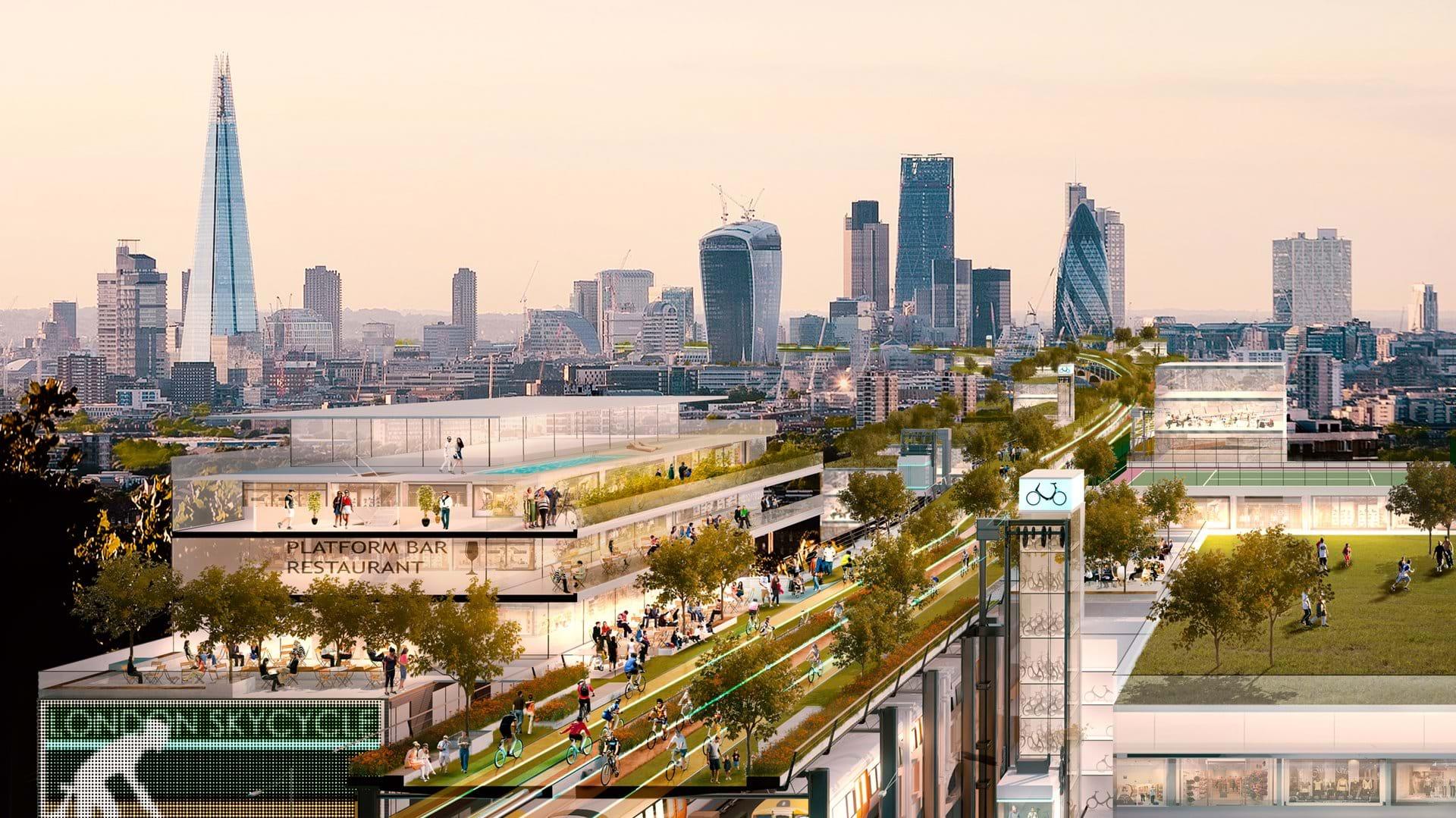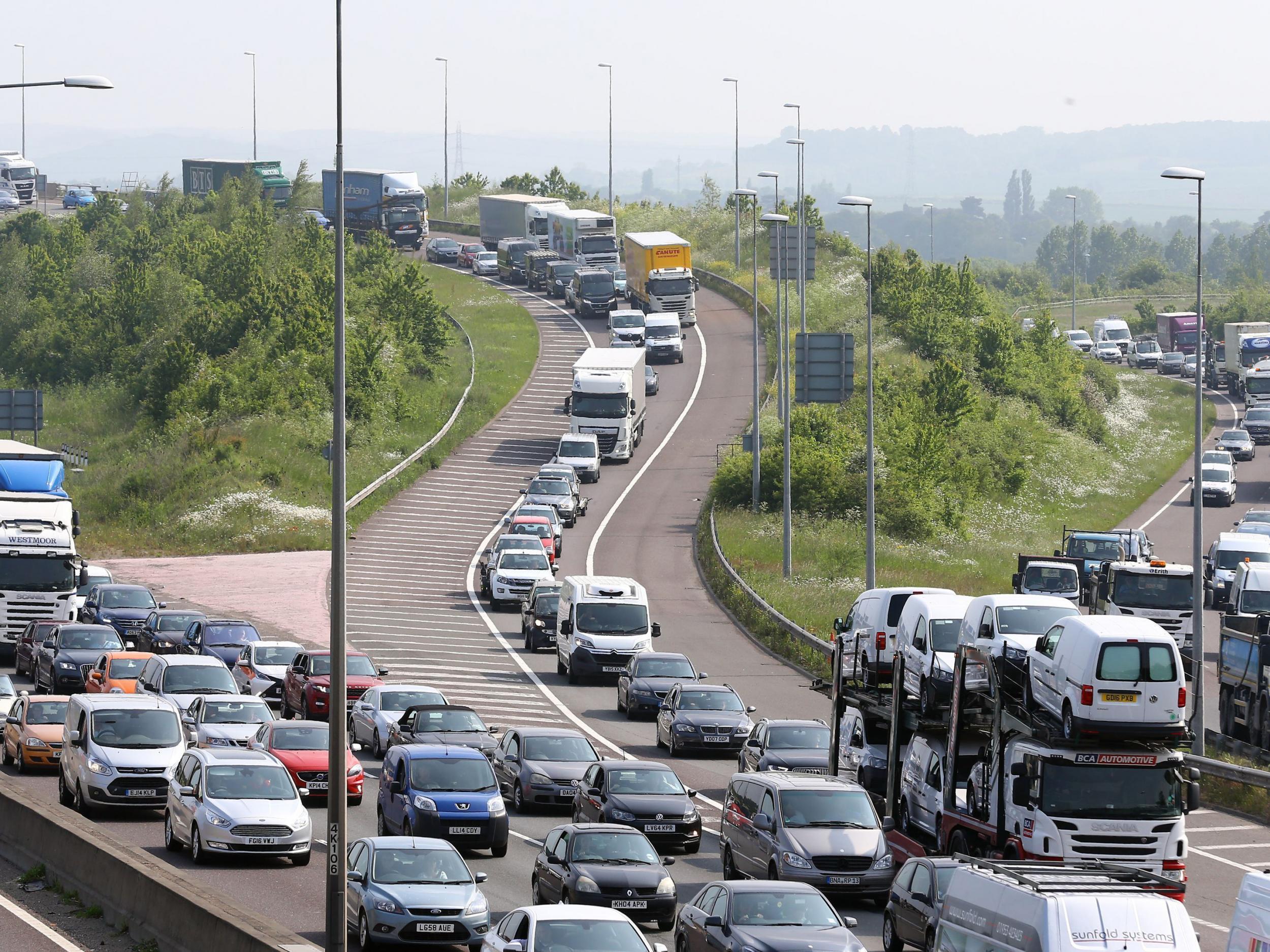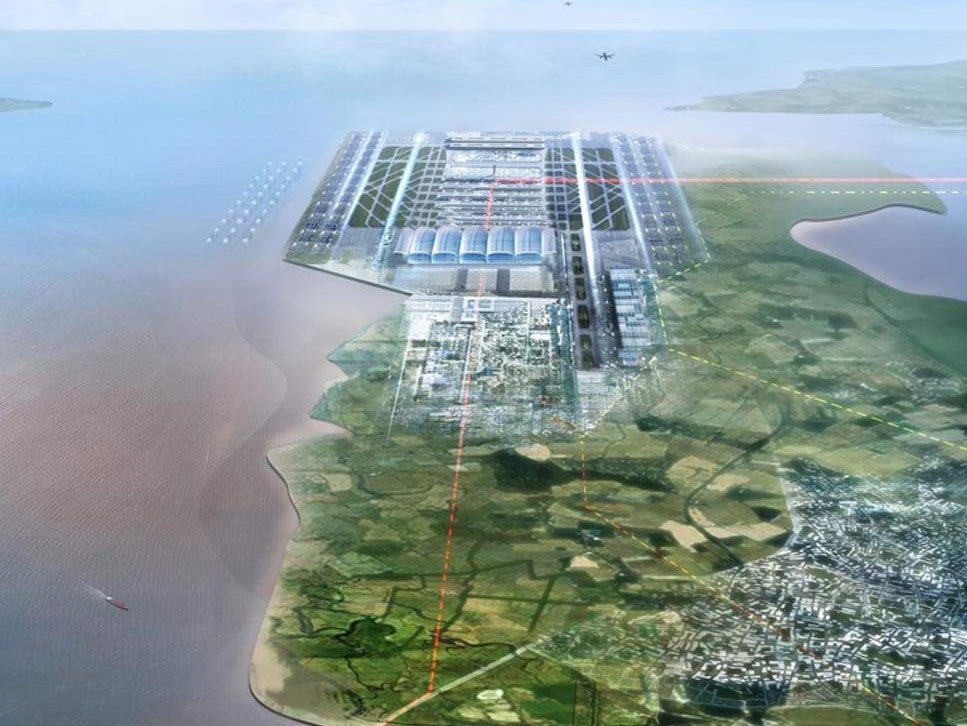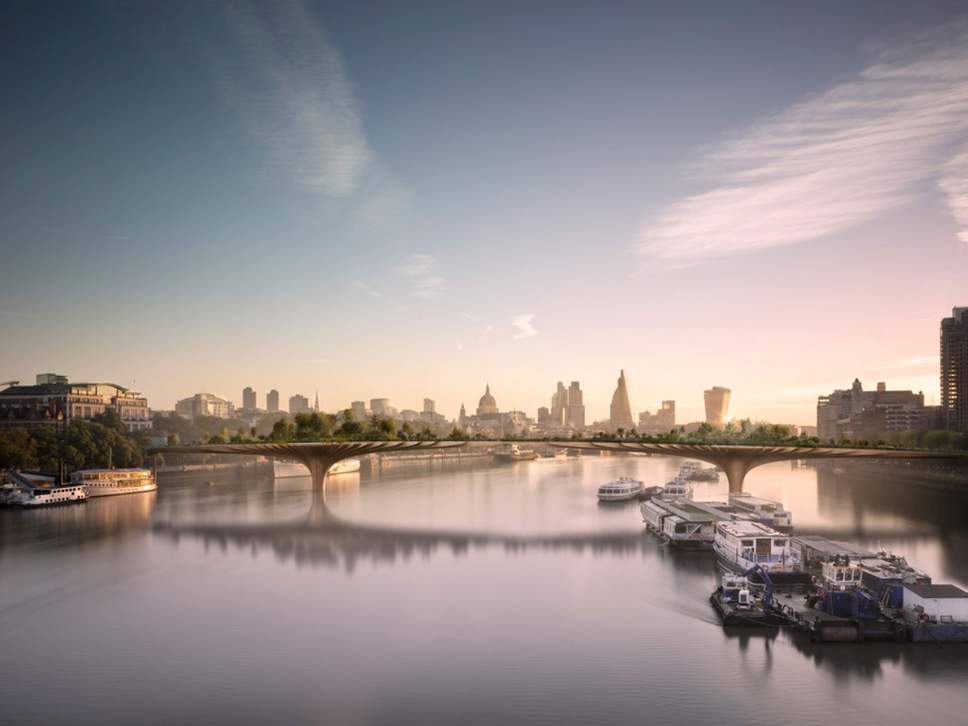From Boris’s Brexit Bridge to a double decker M25: the unlikely mega projects that might keep Britain moving
Could our transport of the future really include sky-high cycle lanes, 700 mph pods and a motorway through the Pennines? Well, says Colin Drury, maybe


From an airport on the Thames to Brexit Bridge, Boris Johnson has never been shy of supporting improbable infrastructure projects
Last weekend the former foreign secretary caused a stir when he renewed calls for a road crossing between Northern Ireland and Scotland.
The link – which would be a probable 30 miles long, in a sea three times as deep as the English Channel (assuming he had in mind a crossing between Larne and Portpatrick) – would be a fitting legacy of the UK’s decision to leave the EU, he reckons.
“What we need to do is build a bridge between our islands,” the one-time London mayor told The Sunday Times. “Why don’t we?”
Critics have pointed out that, in fact, there are plenty of reasons. It would cost an estimated £20bn, for instance.
Even Mr Johnson’s allies have had some trouble associating the idea with what might be called reality. Rather, they say, it is an example of the politician’s “free-thinking”.
Well, we’re all capable of that, aren’t we?
After all, a bridge over the Irish Sea is far from the only ambitious mega-project that has been mooted for the UK of late. So could any of this lot ever really become reality?
A double-decker M25
When Highways England was asked to think up blue sky solutions to congestion on the M25, it seems it took the request literally. One secret proposal presented to the government was to make the motorway a double-decker highway.
Six lanes of elevated carriageways would run for 26 miles to the southwest of London, according to the 2016 plan. But when the idea was leaked not everyone was enamoured. “You can’t build your way out of trouble,” thundered the Campaign to Protect Rural England, while even the AA questioned if the sheer disruption would be worth it.

It remains, for now, on the proverbial ideas board.
London Skycycle
Riding over rooftops is one way to beat traffic – and that is precisely what Lord Norman Foster has proposed as a way for reducing London congestion.
His company has set out a vision for a sky-high(ish) cycle super-highway, which would criss-cross the capital and which has won the theoretical backing – if not the financial help – of Transport for London.
The grand plan would see 220 kilometres of new bike routes installed above rail lines. An initial track from Stratford to Liverpool Street has been costed at a cheeky £200m, which architects say is relatively affordable – which no one has yet volunteered to stump up.
“The idea was proposed in 2013,” Sam Martin, of Exterior Architecture, which worked on the idea, tells The Independent: “Since then, there has been a shift in favour of cycling as a solution to urban transit issues so we remain hopeful the first route can be built with the right political will.”
A road tunnel through the Pennines
Manchester and Sheffield – two of England’s biggest cities – sit only about 38 miles apart.
Yet a rush hour car journey between the two can be a two hour ordeal, mainly because the southern Pennines sits betwixt them. Motorists take a road known as Snake’s Pass, which is as winding as it sounds.
But in 2016 the Department for Transport proposed a new motorway – blasting right through 20 miles of England’s most famous hills.
20
Miles that a tunnel through the Pennines would need to be bored to link Sheffield and Manchester
Transport for the North told The Independent that, at present, consultants are working on an analysis for “a better understanding of the benefits”.
Nonetheless, motorists probably shouldn’t hold their breath: such a road has been advocated by different governments ever since the 1950s.
Thames estuary airport
Another pet project of Mr Johnson, a proposed aviation hub for the capital in the Thames estuary – nicknamed Boris Island – was rejected by the Airport Commission in 2014 and described by experts as “financially, geographically and environmentally wrong”.

BoJo’s response? To re-float the idea once again in a 78-page report in 2016, and refuse to rule it out if he ever becomes Prime Minister.
Supporters argue it’s the “only credible” way of increasing the UK’s air capacity because it would have the necessary space for four runways, as well as high speed rail connections to London and the north.
All that said, “credible” might not necessarily describe the financial estimates. Mr Johnson himself suggested the hub would cost £50bn back in 2012. For context, the building of Heathrow’s third runway is set to top £18bn.
Thames Garden Bridge
7million
The number of visitors a garden bridge across the Thames might have attracted annually, according to supporters
Another one of Boris’s: a widely criticised idea for a crossing over the Thames filled with flora and fauna.
Advocates including Joanna Lumley suggested the bridge would attract 7 million people a year – more than the Eiffel Tower. But it was dogged by spiralling costs, opposition from Londoners, controversies over procurement and, ironically for a bridge championing nature, plans to cut down 30 mature trees to make way for it.
On becoming mayor Sadiq Khan almost immediately canned it, though not before the project had burnt through £46.4m of public money. “I did not waste a single penny,” Mr Johnson later said in all apparent seriousness.

Hyperloop
Critics might say Sir Richard Branson struggles even to run a regular rail service effectively – his Virgin Trains had to give up the East Coast Mainline franchise this year after being unable to meet obligations.
But that hasn’t stopped the bearded entrepreneur from laying out plans for Virgin Hyperloop – a tube-like network that would whip passengers across Britain at 700 mph.
The system – currently being developed in Nevada – would see 20-person pods pinging through an underground tube on electro-magnetic tracks. It would cut journey time from London to Manchester, the first proposed route, down to a coffee-spilling 18 minutes.
“Most definitely it could be built in the UK,” Sir Richard told Radio 4 in May. “It would end up transporting people far quicker, in far greater numbers, with far greater convenience than any other train network.”
Long-suffering commuters might suggest such an ambition would not, currently, be hard to achieve.
Join our commenting forum
Join thought-provoking conversations, follow other Independent readers and see their replies
Comments
Bookmark popover
Removed from bookmarks